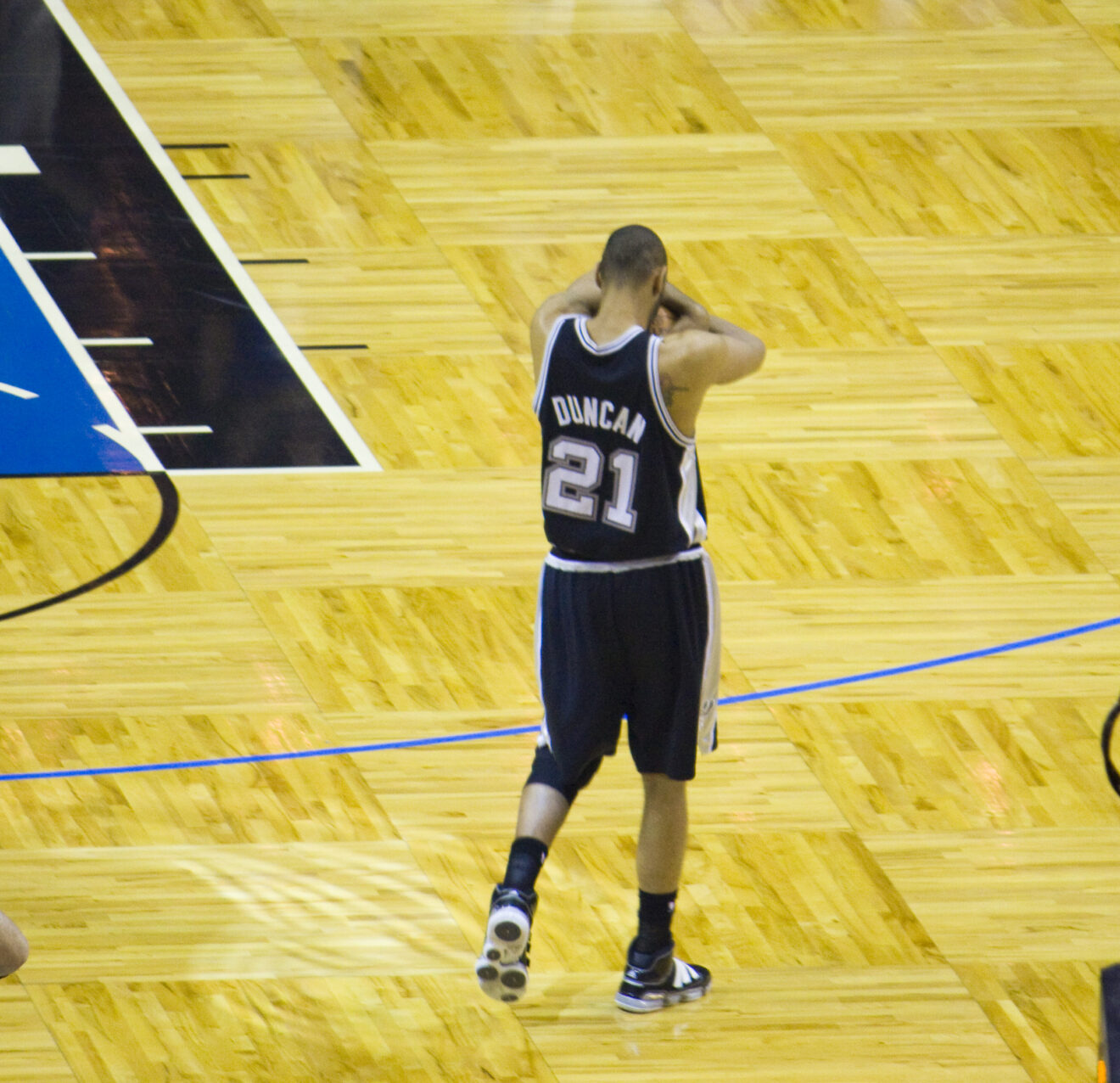I hesitate to look much at sports for lessons in leadership or business, especially at the highest levels — the fame, the money, the nature and fragility of the skill sets required leave most sports with little but superficial similarities to the workplace.
And yet, I’m going to ignore the above paragraph and talk briefly about Tim Duncan, who retired today. I’m not going to talk about Duncan’s statistics or NBA legacy, though I would like to! Instead, I’d like to note two things that come up when NBA people talk about Duncan: his example and his competitiveness.
The San Antonio Spurs are a sports outlier, being the only big four team (football, baseball, basketball, hockey) in a smaller, unsexy TV market. Most franchises have peaks and valleys. The Spurs, every year for the past 19, win the vast majority of their every year and enter the playoffs as a title contender, if not the favorite. They’ve won five titles, and Tim Duncan was part of every one of them. They don’t take games off, they don’t have down years, and they routinely attract players who could get more money or, sometimes, playing time elsewhere.
ESPN had an article that argues that Tim Duncan has changed the organizational culture of the NBA. Regardless of whether that is the case, it’s certainly true that many players and coaches believe this to be so, and act accordingly. But as the article notes, it’s not so easy to go to another franchise and say, “Let’s create a Tim Duncan culture.”
The lesson is that culture is not static or generic. It must always be worked on, refined, revisited, recommunicated, rediscovered. The Spurs have many talented players, and the coaching staff is intact. They will still need to redefine the culture, because Duncan was such a part of it and in many ways the center of it.
As Jamie Notter has written: “It’s not enough to declare that we need more innovation. We need to understand (a) what level of innovation do we really need to succeed in our environment, and (b) what are the unique internal drivers of the right level of innovation in our system.
And while most organizations will not suffer a culture shock from one person leaving, they also cannot forget that culture changes every day. Subcultures emerge, reshape and die every day within larger organizations, too.
The Spurs have a culture by design, and it’s in part because they’re always revisiting the drawing board. This is just a bigger revamp than most years.
Quiet with a killer instinct
The second point is that there’s often this popular separation of “nice” guys and “killer” competitors, in sports but also in business. Kobe Bryant is a beautiful example of the latter, with the former trait embodied by any athlete who’s yet to win a championship but isn’t destroying locker rooms in rage.
What did Kobe have to say about Tim Duncan, a man so seemingly boring and quiet that he’s spawned a running gag in The Onion? “More cutthroat than people give him credit for.”
You don’t play a demanding sport for 19 years — when you had enough money and accomplishments to live comfortably after, say, 10 years — because it’s just a game. You don’t perform the improvements and upkeep, physically and mentally, to adjust your game as age takes its toll, if you aren’t extremely competitive. Consistently showing up and delivering the goods is as significant a sign of a competitive nature as any one-off display.
Duncan consistently sacrificed money, playing time and, eventually, star status to help make the team better. He didn’t do this because he’s a saint or weak. He did it because he wanted to win. Every time. Every year. That’s competitiveness, just not in a way we’re used to perceiving it.
The takeaway
Please, don’t take too much from the Spurs’ success and try to apply it to your business, company, team or clients. Don’t try to compare the Spurs’ ball movement to intra-department communication, or act like Gregg Popovich at press conferences.
But do look at how your culture is evolving, whether planned or otherwise. And do take another look at the quiet or unsung people around you. Don’t assume they’re any less competitive than the brash among you.
And don’t forget your competition. Are they on the sidelines, or are they just quietly preparing to beat you?
James daSilva is the longtime editor of SmartBrief’s leadership newsletter and original content, as well as newsletters for entrepreneurs, HR executives and various other industries. Find him at @SBLeaders or email him.
